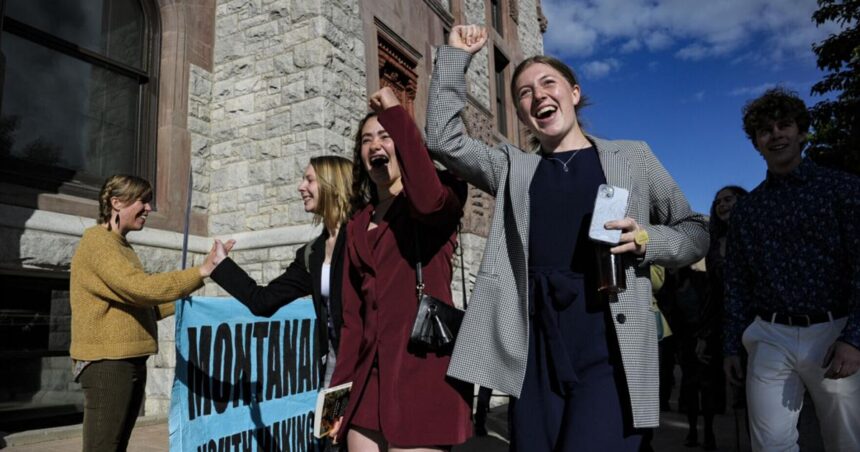On July 10, the Montana Supreme Court heard arguments from state leaders seeking to overturn a climate change legal victory won by a group of young people.
The case, Held vs. Montana, determined that the state legislature had violated the constitution by preventing environmental agencies from analyzing greenhouse gas emissions in fossil fuel projects.
In their appeal, state attorneys contended that the case should be dismissed because the young plaintiffs did not identify a specific project causing harm to them. The state also argued that Montana’s greenhouse gas emissions were not significant enough to impact global warming, rendering a court victory irrelevant to the youths’ demands.
The young plaintiffs cited scientific evidence to demonstrate how state policies promoting fossil fuel development were harming the climate they rely on for health, business, and recreation. A district court judge ruled that this violated their right to a “clean and healthful environment” as guaranteed by the Constitution, rendering the state’s greenhouse gas limitations unconstitutional.
People are also reading…
However, this case goes beyond the legality of one environmental law. Let’s delve into the broader implications of this lawsuit.
This podcast is a collaboration among five newsrooms—the Billings Gazette, Helena Independent Record, Missoulian, Montana Standard, and Ravalli Republic. You can show your support for this podcast and our work by becoming a subscriber.
Lead plaintiff Rikki Held testifies in court in June 2023 during the first day of the Held vs. Montana trial in the Lewis and Clark County Courthouse.
Thom Bridge is a photojournalist with the Independent Record and Montana State News Bureau. He also hosts the Montana Untamed podcast.





